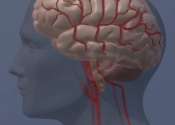Relating sentence representations in deep neural networks with those encoded by the brain
Researchers at the Indian Institute of Science (IISc) and Carnegie Mellon University (CMU) have recently carried out a study exploring the relationship between sentence representations acquired by deep neural networks and ...









